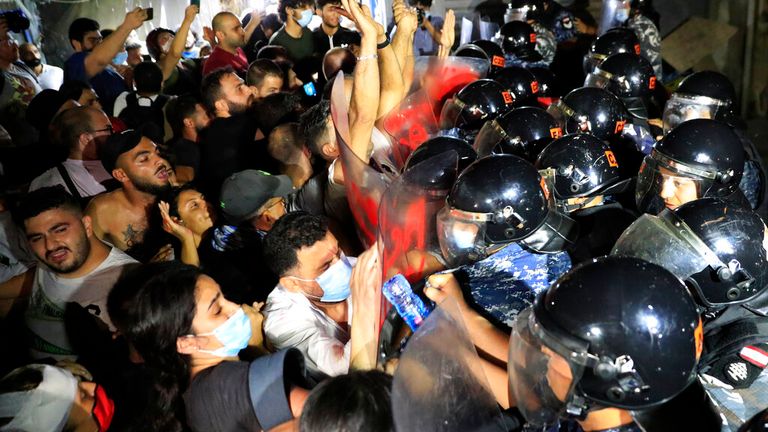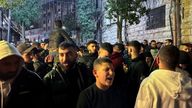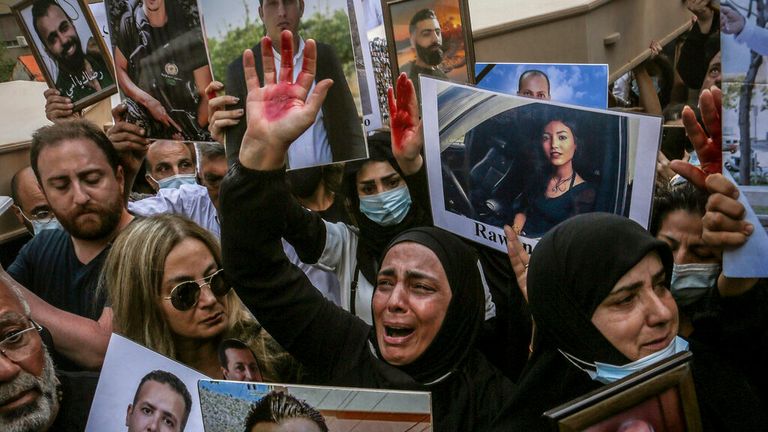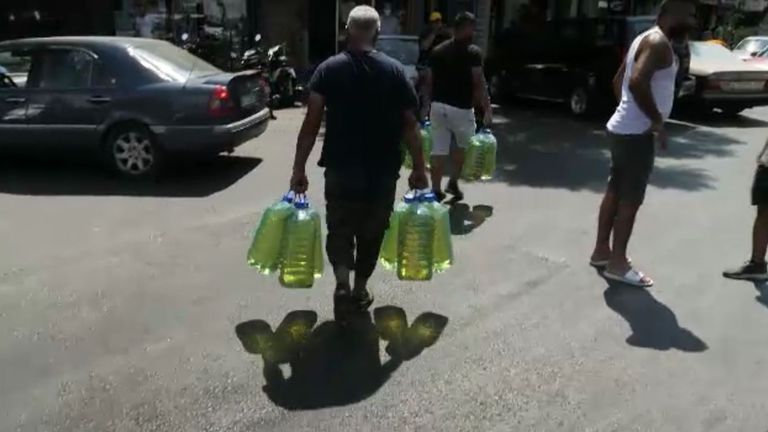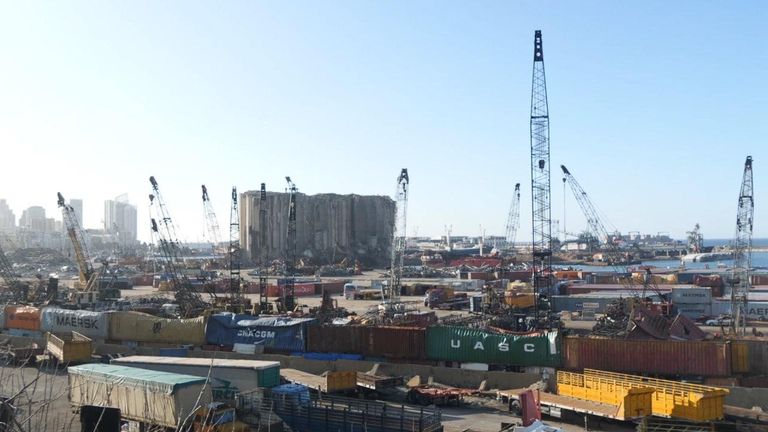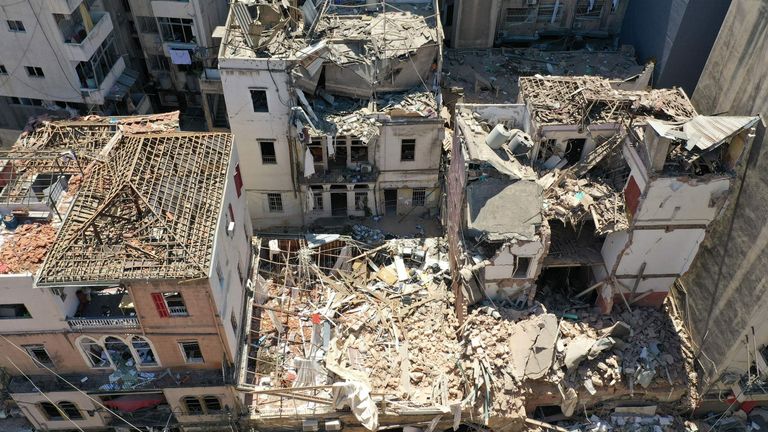Lebanese prime minister Saad Hariri refuses to form a government plunging country deeper into crisis
In the 11 months since the explosion in Beirut, people have been left without food, medicine and electricity.
Thursday 15 July 2021 22:43, UK
Lebanon's prime minister-designate has said that he will not form a government, plunging the country deeper into crisis.
Following months of stalemate, international pressure was on Saad Hariri to put together a cabinet that would ease the current economic depression and open up much needed foreign aid.
But after meeting with the country's president Michel Aoun on Thursday afternoon, Mr Hairi, who has served as president twice before, stepped down.
The Lebanese lira immediately fell further against the US dollar and streets were blocked off by protesters in the capital Beirut.
In the 11 months since the devastating port blast, the Lebanese economy has collapsed and there are fears that violence will take hold as food, fuel and medicine becomes scarce and unaffordable.
Long lines of queues are now a common sight at the petrol stations that remain open across the country.
People wait for hours to fill up with fuel, a commodity that is otherwise widely available and cheap elsewhere in the region.
Many pharmacies are closed, their shelves empty - even basic medicine like paracetamol is hard to come by.
At the start of the week, lines formed outside banks as the Lebanese waited to withdraw money and spend it before the currency deflates further and life becomes yet more unaffordable.
The World Bank has said that the currency crisis in Lebanon is one of the worst in history, on a par with Zimbabwe in the mid-2000s and 1920s Weimar Germany.
Savings have vanished, as the Lebanese lira plunged in value - basic items like bread, milk and eggs are now 10 times more expensive than they were a year ago.
Meat has become a luxury for all but the most wealthy.
There are reports of people threatening to kill themselves in a desperate plea to get help, theft has sky-rocketed as people steal cars and even manhole covers to sell the metal.
Ex-pats that once flocked to Beirut for the high-end Mediterranean lifestyle it offered are now leaving in droves.
Those that remain, do so to enjoy one last summer of fun before they too get out.
Many schools have closed, giving rise to fears of a lost generation unless something changes fast.
The caretaker government, which resigned after the explosion in Beirut port last year, is powerless and ineffective.
Billions of dollars of international aid have been squandered and stolen in recent years, so foreign governments and institutions are withholding further help until a new government is formed.
State help is almost entirely absent. There are no welfare payments to cushion the fall so anyone who cannot afford medicine quickly spirals into unemployment and destitution.
In Tripoli, Lebanon's poorest city, charity workers are helping the most needy from their own pockets in districts where more than 90% are living below the poverty line.
At night, towns and cities fall into darkness as state-provided electricity runs out - fuel for generators is scarce and expensive and companies have recently announced a doubling in prices to rent generators.
Only the headlamps of cars returning home light Beirut's busy highways.
The electricity outages also affect air-conditioning, leaving people sweating in their apartments during the hot summer days.
